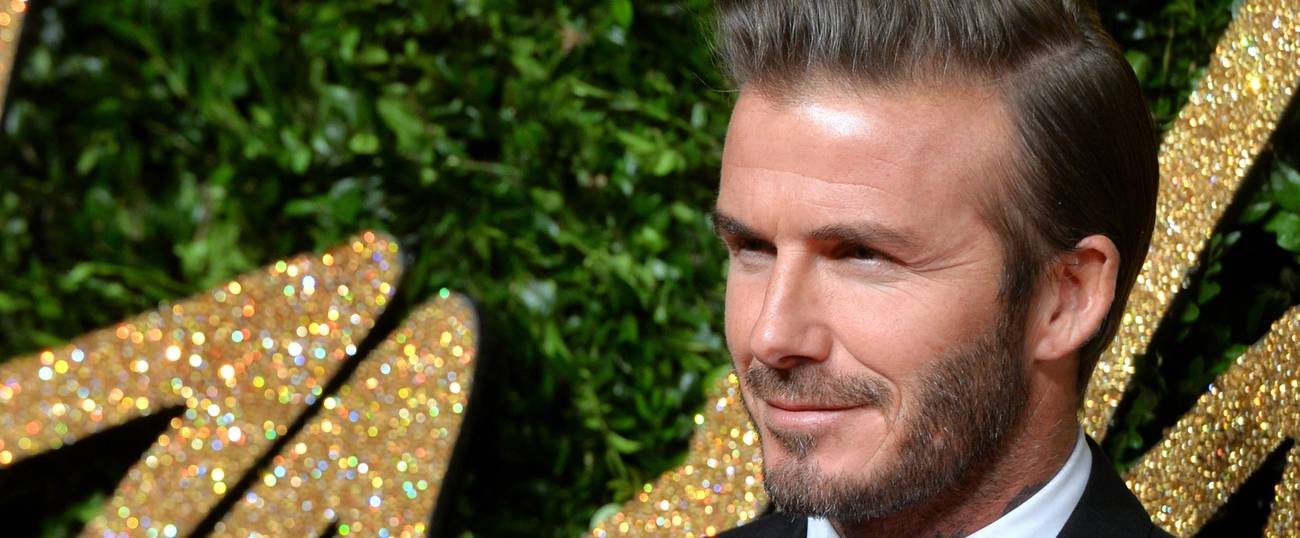David Beckham: I Consider Myself To Be Jewish
‘Every time we went to synagogue I was a part of that,’ Beckham told the London JCC about his relationship with his maternal grandfather




There’s the old joke about the book entitled The Jewish Sports Hall of Fame being a pamphlet. Last week, it added another page—albeit one marked with a slight asterisk—focused on a legendary footballer and fashion icon: David Beckham.
According to the UK’s Jewish Chronicle, in a recent interview event at London’s JCC with broadcaster Kirsty Young, the international sports star went into more detail about his relationship with his maternal grandfather, Joseph West, and his relationship with Judaism.
“My grandfather was Jewish, that was on my mother’s side,” said Beckham, demonstrating his knowledge of Jewish descent laws. “So yes, I do consider myself… I was never brought up Jewish, but like I said, my grandfather was, and every time we went to synagogue I was a part of that.”
His grandfather was presumably a force of inspiration behind the Hebrew tattoos both he and his wife, Victoria, share. Writes Tablet’s Marjorie Ingall:
Both Beckhams are inked with ani l’dodi v’dodi li, ha’roeh bashoshanim, the Song of Songs wedding fave: “I am my beloved’s and my beloved is mine, who browses among the lilies.” Shockingly, hers is written and spelled correctly. His is ungrammatical (“my beloved,” dodi, is in the masculine form) but still sweet.
So yeah, Beckham’s background claim wouldn’t pass muster with say, the Chief Rabbi of Israel, but honestly, does that even matter anymore? To paraphrase Pope Francis, if David Beckham wants to play up and identify with his Jewishness above all else (or even—shocker—suggest it can co-exist peacefully and equally with other ethnic identities), who are we to judge?
But the ramifications (for lack of a more positive sounding word) are interesting. It’s constantly insinuated, if not stated outright—in articles, editorials, fundraising speeches, and responses to various terror attacks—that this is the most dangerous time to be a Jew in the world since the 1930s. And yet people like David Beckham, who a couple of generations ago would have labored to hide their Jewish connections, and probably succeeded, are now leaning into them in a public way.
Think of Lenny Kravitz, Amar’e Stoudmire, and Gwyneth Paltrow—they’re all halakhically non-Jews, and in many cases, were raised without any particularly strict adherence to religion. But they are all, nonetheless, eager to “out” themselves as Members of the Tribe. To paraphrase yet again, we’ve come a long way, baby, from the times when Jewish celebrities were intent on keeping their Jewishness discreet, if not quite entirely secret. These are uncertain times, to be sure, but it’s worth remembering the next time you read something about how everybody hates Jews and all is lost, that we’re in pretty good—and diverse—company. We will all go together when we go.
Editor’s note: A previous version of this article incorrectly stated that actor Harrison Ford was not halakhically Jewish. He is, as his maternal grandparents were Jewish.
Previous: Black Jews You Should Know, Part 1
Related: 11 Non-Jewish Celebrities—and Two Jewish Ones—Show Off Their Hebrew Tattoos
Rachel Shukert is the author of the memoirs Have You No Shame? and Everything Is Going To Be Great,and the novel Starstruck. She is the creator of the Netflix show The Baby-Sitters Club, and a writer on such series as GLOW and Supergirl. Her Twitter feed is @rachelshukert.